SUMMARY
This is AI generated summarization, which may have errors. For context, always refer to the full article.
![[OPINION] UP to the State: ‘Not beyond Philcoa’](https://www.rappler.com/tachyon/2021/01/UP-ideological-institution-January-21-2021.jpg)
Nowhere else is the free exchange of ideas pursued with as much enthusiasm, irreverence, passion, even acrimony, as it is in UP. Before anything else, UP is an ideological institution. Ideas are its currency; intellectual achievement, its definitive hierarchy; and intellectual contention, its core activity. Ideological and theoretical premises and prescriptions are forced into the light of day, interrogated and challenged, turned inside out. No school of thought, no ideology, is exempt from inquiry; they are all tasted, masticated to a pulp, and spat out.
This is the dynamic that is played out in UP campuses across the land, whether in the physical or social sciences, in the liberal arts and humanities, in the various professional and post-graduate schools. And out of this froth and churn, a measure of clarity (never consensus) is attained, stronger ideas emerge, and new knowledge is created. It is this new knowledge that is of immense social value to a country adrift in uncertain times.
This free flowing traffic in ideas and its creative potential is the intangible resource protected by the academic freedom and institutional autonomy guaranteed UP by law (Republic Act No. 9500 otherwise known as the UP Charter of 2008). But intellectual liberty itself is fragile and ethereal, wholly dependent not only on noisy but powerless academics, but also upon the restraint and forbearance of the State.
For so long as the State remembers society’s critical need for knowledge, and the atmosphere of unfettered inquiry required to generate that knowledge, a balance is maintained where academic freedom, and the free thinking it secures, may thrive. But when the State forgets this, the balance is upset and in the imbalance, space is created for government initiatives as foolhardy as the DND’s sudden termination of its 1989 Agreement with UP. Without the “protections and courtesies” in the Agreement, the State gains entry into, and full range of motion within, UP campuses nationwide.
Second only to the AFP itself, it is the DND that represents the components of State power that are the most toxic to intellectual liberty: conformity, unquestioning obedience to authority, and the institutionalized use of deadly force. In the face of deadly force, or even the threat thereof, the delicate freedoms of the mind wither.
If the 1989 UP-DND Agreement was a powerful symbol of the State reigning in the threat of deadly force so that intellectual liberty may fully flourish, its unceremonious termination by the DND is also highly symbolic. Obviously, it signals the State’s readiness to intrude into academic enclaves, dictate the limits of intellectual liberty and the exclusive directions of its exercise, and deploy deadly force to impose its dictates. Less obviously, but more insidiously, it signals the State’s willingness to forego the knowledge that a free UP could offer the country, for the tactical requirements of state security.
Is intellectual liberty a threat to state security? Yes and no. Should ideas circulating on campus gel into action, and should these acts contain the elements of crimes as defined and penalized under existing laws, then the State acquires a legitimate interest in pursuing these criminals. But there is not any single provision in the 1989 UP-DND Agreement that may even be remotely interpreted as a bar to law enforcement and crime prevention; academic freedom has never been invoked to excuse or justify criminal conduct.
In another sense, however, intellectual liberty and critical thinking that are the portals to the creation of socially useful knowledge is always a threat to the security of the State. Critical thinking presupposes a refusal to respect authoritative prescriptions, and an eagerness to question and challenge them. In turn, this leads to a mindset that is at once anti-status quo, anti-authoritarian, disruptive, normative, and progressive. It is a mindset that not only seeks to understand “what is” but asks also “what should be.” It is consequently a mindset fundamentally subversive of the State’s overriding impulse to preserve order and its position of authority in that order, and then to demand conformity and obedience to that authority.
Authoritarian States especially, are incapable of reigning in these impulses, are especially intolerant of the disruptive and critical noise emanating from school campuses, and so impatiently, forcibly, seek egress to these enclaves of intellectual liberty. While intellectual disruption is ultimately beneficial to society, the authoritarian State is myopic and incapable of the long view, blinded by what it perceives as campus-based “threats to national security.” In its myopia, it lets loose the dogs of war upon the nation’s students and teachers.
Justifying the termination, the DND declares concern for the safety of students supposedly exposed in UP to communist recruitment. On the other hand, DND apologists rhetorically ask why the need for the special treatment accorded UP under the 1989 Agreement?
The latter argument attempts to mobilize resentment against UP’s alleged exceptionalism and elevated sense of entitlement. But it is nevertheless a ridiculous argument. If intellectual liberty as protected by academic freedom is important, then all schools, all colleges and universities, not just UP, should have instruments like the 1989 UP-DND Agreement to protect their campuses and the free thinking within them.
And what about the red bogeyman? Communists have always enjoyed safe haven in UP, but they peddle just one school of thought in the proverbial marketplace of ideas, sharing shelf space with a variety of other offerings that include Christian Fundamentalism, the Ananda Marga, and Friedmanite Economics. In a community of critical thinkers, the idea of clueless UP students being brainwashed into joining an outlaw army is laughable, as is the idea of UP institutionally reduced to a recruitment facility for the CPP-NPA-NDF.
In the end, the hope is that enough conscientious Filipinos will stand with UP students, teachers, employees, residents, alumni, and administrators as they admonish the State not to advance beyond Philcoa, at the far end of University Avenue, and to leave UP alone. – Rappler.com
Raffy Aquino is a FLAG lawyer and partner at law office Santos, Parungao, Aquino, and Santos.
Add a comment
How does this make you feel?
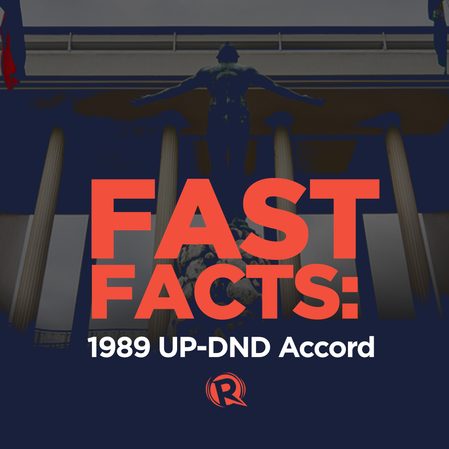



![[Just Saying] Diminished impact of SC Trillanes decision and Trillanes’ remedy](https://www.rappler.com/tachyon/2024/04/Diminished-impact-of-SC-Trillanes-decision-and-remedy.jpg?resize=257%2C257&crop=273px%2C0px%2C720px%2C720px)
![[Rappler Investigates] Son of a gun!](https://www.rappler.com/tachyon/2024/03/newsletter-duterte-quiboloy.jpg?resize=257%2C257&crop=450px%2C0px%2C1080px%2C1080px)
![[OPINION] ‘Some people need killing’](https://www.rappler.com/tachyon/2024/04/tl-some-people-need-killing-04172024.jpg?resize=257%2C257&crop_strategy=attention)
![[Judgment Call] Resisting mob mentality for warrantless arrests](https://www.rappler.com/tachyon/2024/04/judgement-call-mob-mentality.jpg?resize=257%2C257&crop=352px%2C0px%2C720px%2C720px)

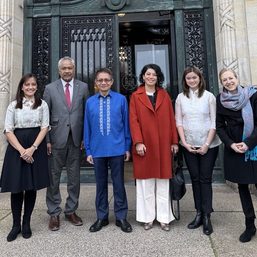
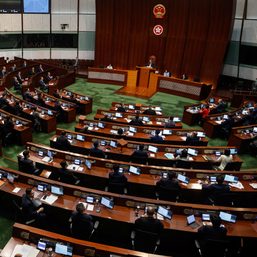

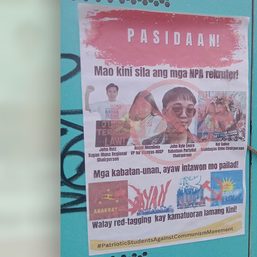
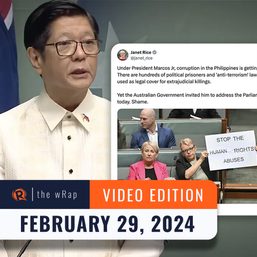
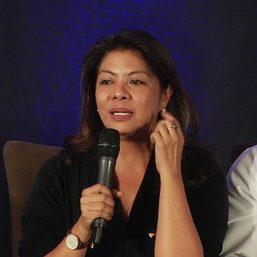
![[OPINION] Jhed and Jonila’s fight for justice](https://www.rappler.com/tachyon/2024/02/TL-jhed-and-jonilla.jpg?resize=257%2C257&crop=411px%2C0px%2C1080px%2C1080px)
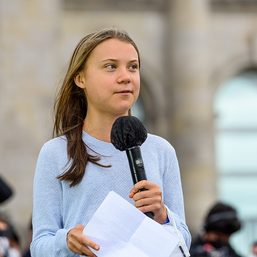
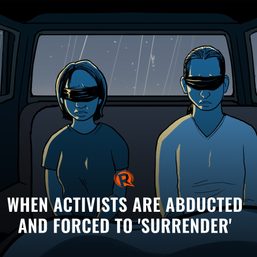
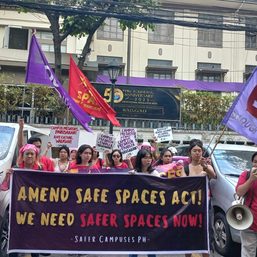
There are no comments yet. Add your comment to start the conversation.